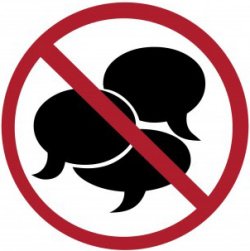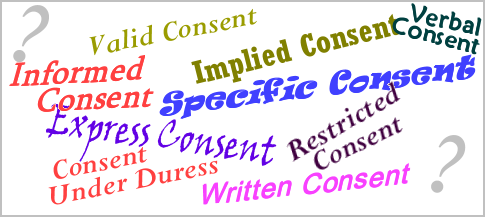 |
| upper image is from here; lower image is from here |
To me an important breakthrough, I felt, in my work and that of others was the call to use the term white supremacy, over racism because racism in and of itself did not really allow for a discourse of colonization and decolonization, the recognition of the internalized racism within people of color and it was always in a sense keeping things at the level at which whiteness and white people remained at the center of the discussion. — bell hooks
Quote, p. 68, Critical Foundations in Young Adult Literature (author: Antero Garcia)
[M]y vehicle was going to be truth: not a global, self-deluded truth, not a truth that only I knew and that I wanted other people to follow, but the truth that came from not lying. — Andrea Dworkin
Heartbreak: The Political Memoir of a Feminist Militant, page 21
Heartbreak: The Political Memoir of a Feminist Militant, page 21
There is difference and there is power. And who holds the power decides the meaning of the difference.
— June Jordan
Quote, p. 220, Virtual Equality: The Mainstreaming of Gay and Lesbian Liberation (author: Urvashi Vaid)
Quote, p. 220, Virtual Equality: The Mainstreaming of Gay and Lesbian Liberation (author: Urvashi Vaid)
To the leaders and moderators of The Conversations Project:
It appears as though you disappeared a lot of my writing from the Facebook group without any direct notice or personally delivered warning that this would occur. For the record, I do not consider myself as having left the group, nor have I received any notification that I am barred. So I think appropriately, I consider myself a part of it. I'll steer clear of any presumptions, as I have been welcomed, quite recently, to continue to post there. But I feel like I'm getting mixed messages. As I think you know, from the start of my involvement, I stated that I will utilise my blog to process or expand upon things I have mentioned there. So this post is simply the latest, and is not intended to be the final analysis.
My last comment, for the record, was to share a link* as an addition to a relevant discussion within the group. This is, in fact, a five-part conversation on trans and feminist issues, which I'd entirely forgotten about. Here is the full series of conversations with Sara, which occurred in late 2010:
Part 1: https://radicalprofeminist.blogspot.com/2010/11/sara-and-julian-discuss-transfeminist.html
Part 2: https://radicalprofeminist.blogspot.com/2010/11/part-2-sara-and-julian-discuss.html
Part 3: https://radicalprofeminist.blogspot.com/2010/12/sara-and-julian-discuss-transfeminist.html
*Part 4: https://radicalprofeminist.blogspot.com/2010/12/sara-and-julian-discuss-transfeminist_03.html
Part 5: https://radicalprofeminist.blogspot.com/2010/12/sara-and-julian-discuss-transfeminist_05.html
To the readers of this blog:
At this point, I've been in the group a full three weeks. A couple of days ago I thought there was a breakthrough in finally acknowledging what that group is and isn't designed to be or prepared to do. I saw that one of the creators might move forward with radical honesty--I appreciated her so much for this indication, but that got immediately thwarted by another member.
What the group cannot as yet do is deeply interrogate key aspects of gender because triggering occurs when several topics and phrases get raised. It also can't, as yet, get far because it doesn't seem committed to looking beyond white norms except to appropriate concepts, experiences, and cultural understandings of those we whites work so diligently to destroy. Sadly, racist appropriation of things like "inclusivity" and "intersectionality" are among many colonial white norms.
As one feature of The Conversations Project, there is a series of interviews with feminists or queer theorists. Some of those have been posted. At last glance, all the experts are white. The principal authors of the project are also white. (And the most vocal members of the group are white-identified.) The project itself is tethered to work and perspectives that cannot be anything but white-centric and so it loses all possibility of radical contribution to Feminist and Queer theory, unless you think more white supremacist theory is radical. But, for whom could that be true?
Making room for some marginalised voices is identified as radical--and marginalised voices should certainly be heard. But bringing in usually excluded perspectives while not challenging the oppressive norms or exclusionary practices in the center of the room is also designated as radical. I have disagreed.
To date, the group has refused so much of the depth and dimension of Radical Feminist herstory, such as the more radical theories and activist efforts by white women and women of color; it has created an unfortunately narrow breadth of inquiry, even within an already stifling white discourse. An interview with Catharine A. MacKinnon avoided addressing the core issues in MacKinnon's work, such as the maintenance of sex inequality through harassment, degradation, and speech acts. All of Andrea Dworkin's insights on battery and rape, on occupation and subordination, have been ignored.
So it shouldn't come as any surprise that if a group doesn't, together, welcome dealing substantively with such sharp white activists' work, the work of brilliant women of color would be completely occluded. Beyond marginalised. Audre Lorde, Alice Walker, Gloria Anzaldúa, bell hooks, Winona LaDuke, Patricia Hill Collins, Vandana Shiva--all radically feminist writers of theory and art, practitioners of activism, have not been welcomed and are viewed as off topic, too tangential in focus. Have we not heard precisely this excuse during half a century of feminist discourse--and for many centuries?
The Facebook group pays lots of liberal lip service, however sincerely, to the problem of racism and the value of women of color. But the group, as a whole, or through its leadership, will not acknowledge the degree to which it is a white supremacist space. (If you have not as yet, I invite you to read the first quote that introduces this post.) If anyone from that group, or beyond it, wants more detail, just ask, in a comment here, and I'll explicate several points of critique.
My perseverance in seeking to address several limitations within the group was seen as distracting from a stated purpose. But to even believe such a direction amounts to a distraction, means one is willfully committed to a lack of knowledge about gender politics in colonial patriarchies. I'm arguing that not even the most privileged of us can afford to ignore how white manhood and capitalism combine with misogynoir and anti-Indigenism to create patriarchal rape culture. And to grasp it, those of us who are white have to learn about others and ourselves from writers like hooks and Collins. As another white member stated there, to my cheers, white people cannot lead us.
I am reminded daily of the refusal to acknowledge the meaning and force of our whiteness. The refusal was tangible there. Blatantly visible in a number of ways. But denied, which is often enough the first line of defense. (And hopefully the only line.)
In short, the group has not been radically feminist, or radically inclusive, if being either means centering voices and theories of women of color and non-binary POC. Nor has it been one that could go far or deep with its conversations. Here's one example: To ask what is patriarchal about the majority-white conflict between what is termed T--Fs and liberal trans activists, was effectively verboten. To ask which of the dynamics and practices participate in rape culture: forget it. No go. Not even a dead end: nothing paved to even get to a dead end. Partly, the reason had to do with triggering, but not by being triggered by men's violence, per se.
Fundamentally, I think it is a support and education group for a few white trans* people who are trauma survivors. I fully support traumatised people gathering in spaces where they, themselves, define and determine the parameters of their own safety. But the only trauma discussed was committed by white natal women. When the most harm you've experienced as a white person is from a few white Radical Lesbian Feminists, one could argue you've somehow managed to avoid the brunt of what patriarchy forces on people. When the harm is interpersonal to the point that the perpetrators have names (and just a few names), I'd argue we are in the realm of a kind of abuse that is not what attempts to kill most women. Most harm is structural, systemic, institutional, including the interpersonal or intimate expressions of it. To the extent the harm named there shows up in institutions, it is due to its application by white men, not white women. Or it is directly caused and controlled by men across ethnicity.
We were not discussing PTSD as arising from misogynist, institutionalised rapist violence. Or as emanating from racism alone, or from misogynoir. The forms of dissociation and denial I personally witnessed in that minority group have been raced white and were not assigned female at birth. (That is meant to be a deeply political, not an anatomical, point.)
Thus far, the group's efforts have had limited applicability to the actual world of oppression. This is partly due to mining only a few bits of some white radical feminists' work. Then combining that with liberally inclusive elements of white-dominated Queer theory. To be clear: the bits are veridical; the elements are estimable. But anti-feminism--the willed erasure of most women and the sources of their subordination and injury, ought not permeate radical pro-feminist conversations. It especially ought not delineate them.






